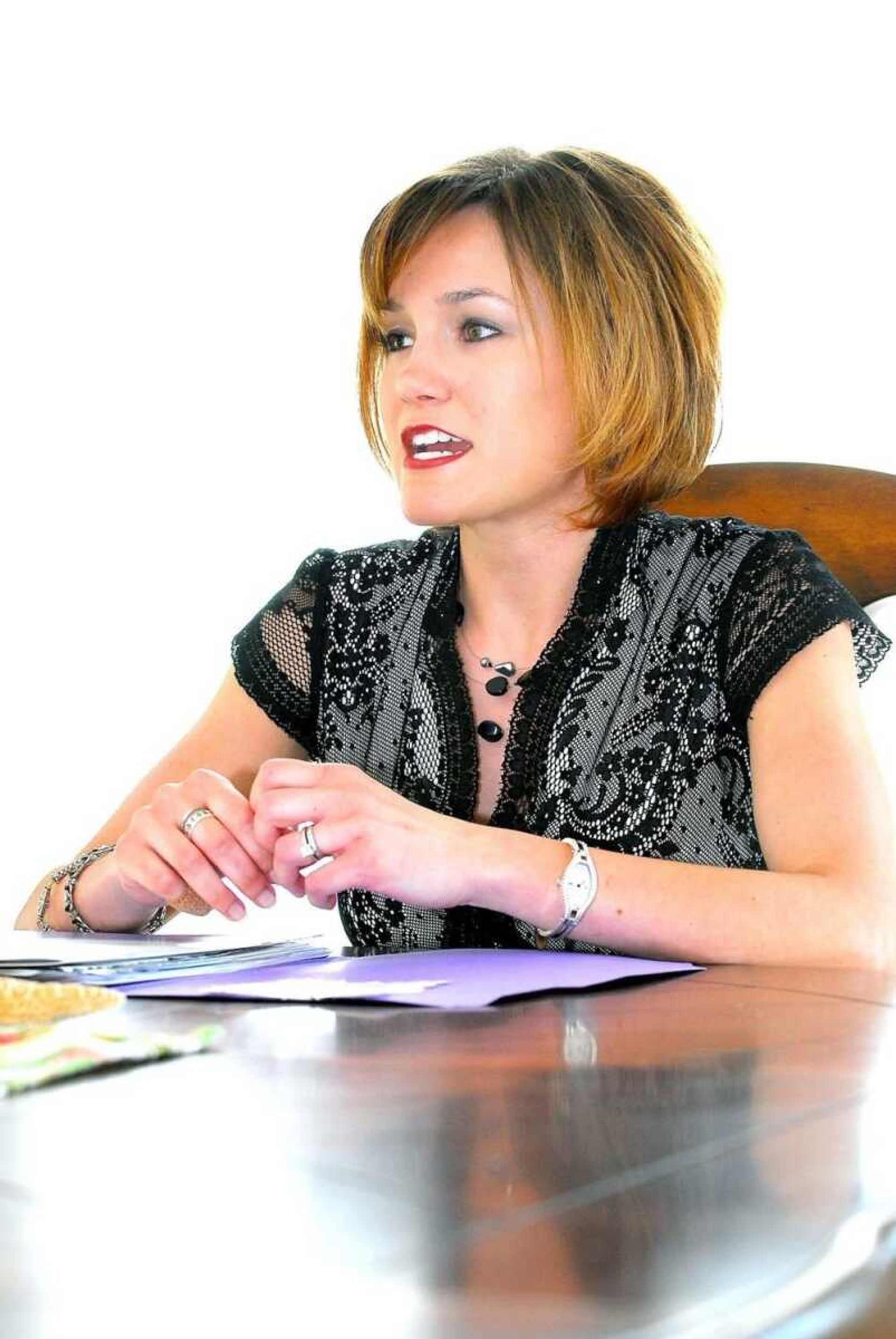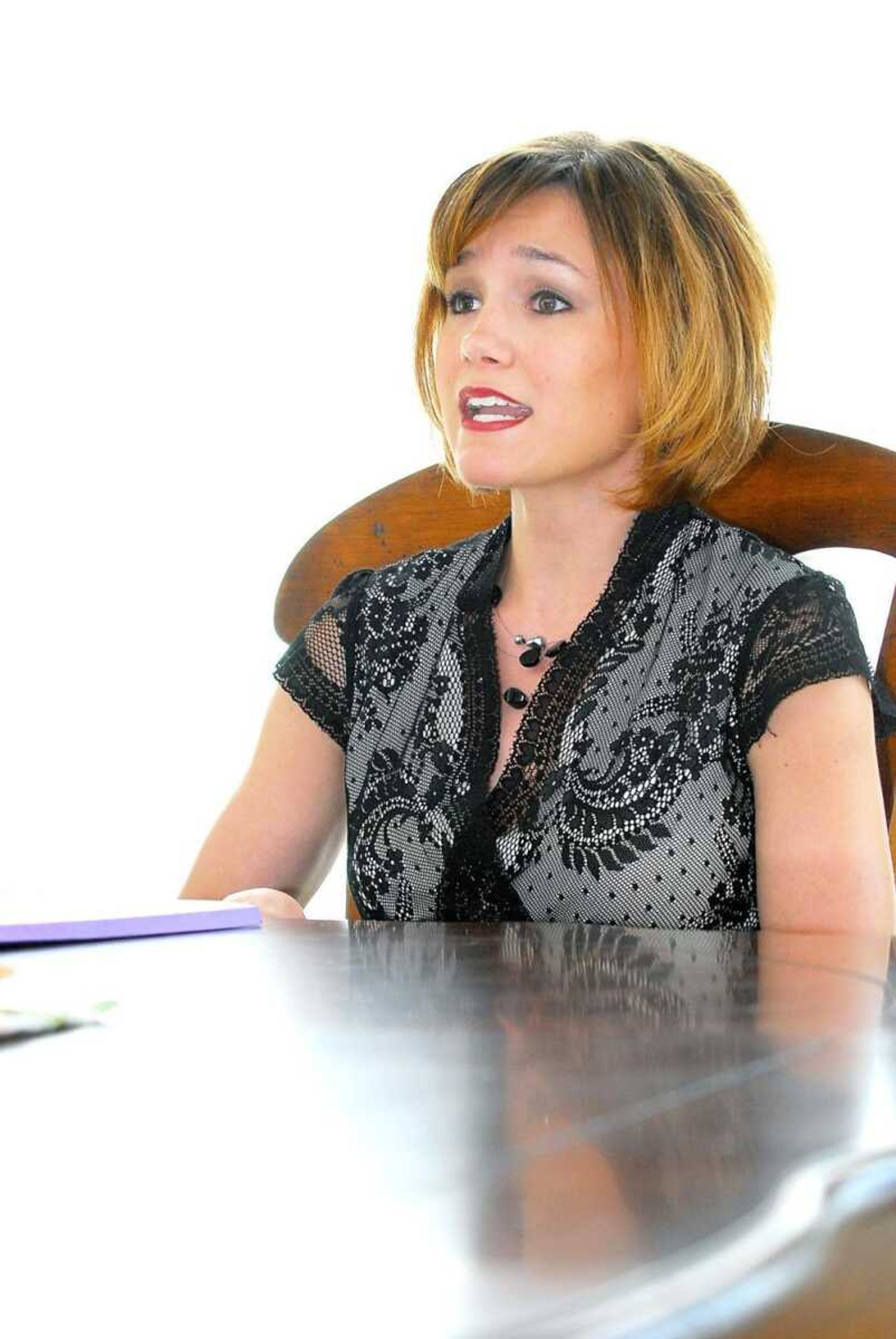Taking steps to lower the odds
Megan Marchi isn't waiting for doctors to diagnose her with breast cancer. The 26-year-old Jackson woman will undergo surgery this summer to reduce her chances of the diagnosis by more than 85 percent. Seven women in the past three generations on the maternal side of Marchi's family have been diagnosed with breast cancer, and two men had prostate cancer...
Megan Marchi isn't waiting for doctors to diagnose her with breast cancer.
The 26-year-old Jackson woman will undergo surgery this summer to reduce her chances of the diagnosis by more than 85 percent.
Seven women in the past three generations on the maternal side of Marchi's family have been diagnosed with breast cancer, and two men had prostate cancer.
The history of cancer in Marchi's family is so strong that a geneticist described it as "daunting." The Mayo Clinic -- a not-for-profit medical facility dedicated to the diagnosis and treatment of every type of illness worldwide -- has even shown interest in researching Marchi's family history of cancer.
Because of the strong history and the discovery of the BRCA1 breast cancer gene in her second cousin, Marchi has been told by doctors there's a strong chance she will develop breast cancer at some point in her life.

But Marchi never wants to hear that diagnosis.
At the end of June, Marchi will have a prophylactic mastectomy with immediate reconstructive surgery after the procedure. The surgery requires the removal of tissue from each of Marchi's breasts.
"I've got a family history of cancer that's out of this world," Marchi said. "The way I look at it is that I've got two choices: I can do this on my own terms when I'm ready, or I can be diagnosed with breast cancer, go through surgery, chemo and maybe not survive."
Dr. Joe McCadams of the Breast Care and Diagnostic Center in Cape Girardeau said a family history of breast cancer is the most important risk factor for women, but all women should receive regular breast examinations.
All women have a one in eight chance of developing breast cancer at some point in their lives. Having a family history of the cancer will double or triple your chances of the diagnosis, McCadams said.
"Women with a family history of breast cancer should be tested and examined earlier," he said. "But I'm always concerned about people focusing on the family history too much. Just because you don't have a family member who had it, doesn't mean you won't get breast cancer."
When Marchi was 20 years old, her mother was diagnosed with breast cancer. She had a lumpectomy and plans to have the same procedure as her daughter later this year to eliminate the recurrence of the cancer.
'Not a pretty picture'
"Anyone who's seen a family member go through cancer knows it's not a pretty picture," Marchi said. "I've seen my mom go through chemo, lose her hair, throw up and become fatigued. I think if you've seen someone go through cancer, you will understand why I'm going through this surgery."
The Mayo Clinic has shown an interest in researching Marchi's family history because of unusual trends of cancer in her family. Marchi's mother had breast cancer once and her aunt was diagnosed with the disease twice. Another aunt had tongue cancer and her uncle had prostate cancer. Only one of Marchi's mother's siblings hasn't been diagnosed with cancer.
"What's throwing everything off is that my grandmother never had cancer but one of her sisters did," Marchi said. "Two of the children from my grandmother's brother and sister also had breast cancer."
Earlier generations of Marchi's family also battled the disease. Her great-grandmother's two sisters had breast cancer.
"I've been told my family tree is 'daunting,'" Marchi said. "Not a lot of people have this many relatives who've had cancer."
Another reason the Mayo Clinic has been intrigued with Marchi's family history is that her mother underwent a genetic test and the BRCA1 gene wasn't found in her body.
Two genes
The geneticist who performed the procedure told Marchi's mother that only two breast cancer genes -- BRCA1 and BRCA2 -- have been identified. Neither of the genes were in Marchi's mother's body. Since the genetic testing technology is so new, there may be other genes that haven't been identified. Because of this, Marchi's mother will receive another free genetic test to try and identify a new breast cancer gene.
"The geneticists believe my mom may be shedding light on a new gene that hasn't been identified yet," Marchi said.
McCadams said women with the BRCA1 or BRCA2 genes will have a 90 percent chance of developing breast cancer at some point in their lives.
"This genetic testing is available for women with a strong family history of breast cancer," he said. "If you have a concern, you can talk to your doctor about having the genetic testing."
The decision to have the surgery to remove both breasts came after a conversation Marchi had with a co-worker whose mother passed away from breast cancer. The co-worker has been contemplating having the prophylactic mastectomy and strongly urged Marchi to research her family history and consider the surgery.
Marchi began her research and spoke to a surgeon in St. Louis in January. He agreed to perform the surgery after she spoke with a geneticist and plastic surgeon.
"The plastic surgeon agreed with me about getting this surgery," Marchi said. "He told me, 'I've seen too many young women who think they'll never get cancer until they're old, but now they are coming here in their 20s and 30s with breast cancer.'"
McCadams said the prophylactic mastectomy with immediate reconstruction surgery is also performed in Cape Girardeau.
Once Marchi's doctors agreed to perform the prophylactic mastectomy with immediate reconstruction, she discussed the procedure with her parents and husband, Todd.
"They were very supportive of my decision to get this done," Marchi said. "About 48 hours after my decision, I was approved by my insurance to have the surgery."
Doctors have told Marchi the surgery will reduce her chances of getting cancer from 90 percent to less than 5 percent.
McCadams said the surgery won't eliminate the chances of Marchi or women like her to ever have breast cancer. "There's still breast cells that will remain but having the surgery will reduce your risks to the lowest it can be," he said.
"With such a strong history of breast cancer in my family, this is something I think about every day -- I have extreme anxiety about it," Marchi said. "If people don't agree with this surgery, that's fine. They don't have to worry about getting cancer, but I do."
More procedures
Eventually, Marchi will have both her ovaries removed since doctors have told her breast and ovarian cancer are closely related.
Marchi, who is a graduate of Jackson High School, said she is deeply involved with Relay for Life, an annual fund-raiser for cancer research and programs of the American Cancer Society.
"When I see all the cancer patients and hear the stories about the people who have passed away, it makes me think why should I be so naive and think this won't happen to me," she said. "I want to be battle this now because I know I'll probably get breast cancer some day. I'm prepared to fight fire with fire."
jfreeze@semissourian.com
335-6611, extension 246
Connect with the Southeast Missourian Newsroom:
For corrections to this story or other insights for the editor, click here. To submit a letter to the editor, click here. To learn about the Southeast Missourian’s AI Policy, click here.










